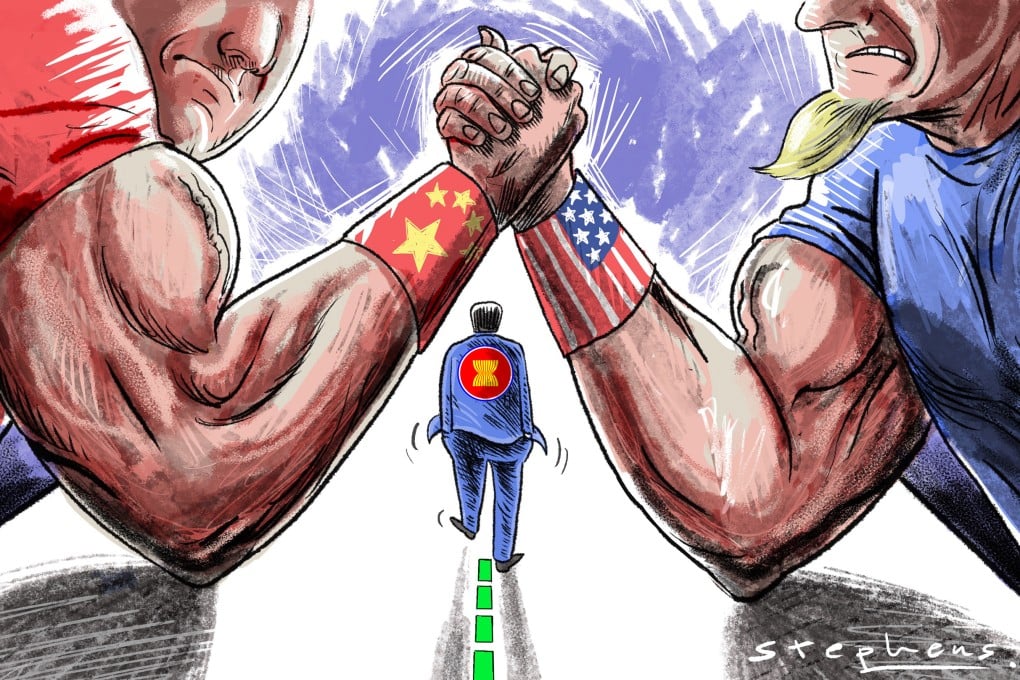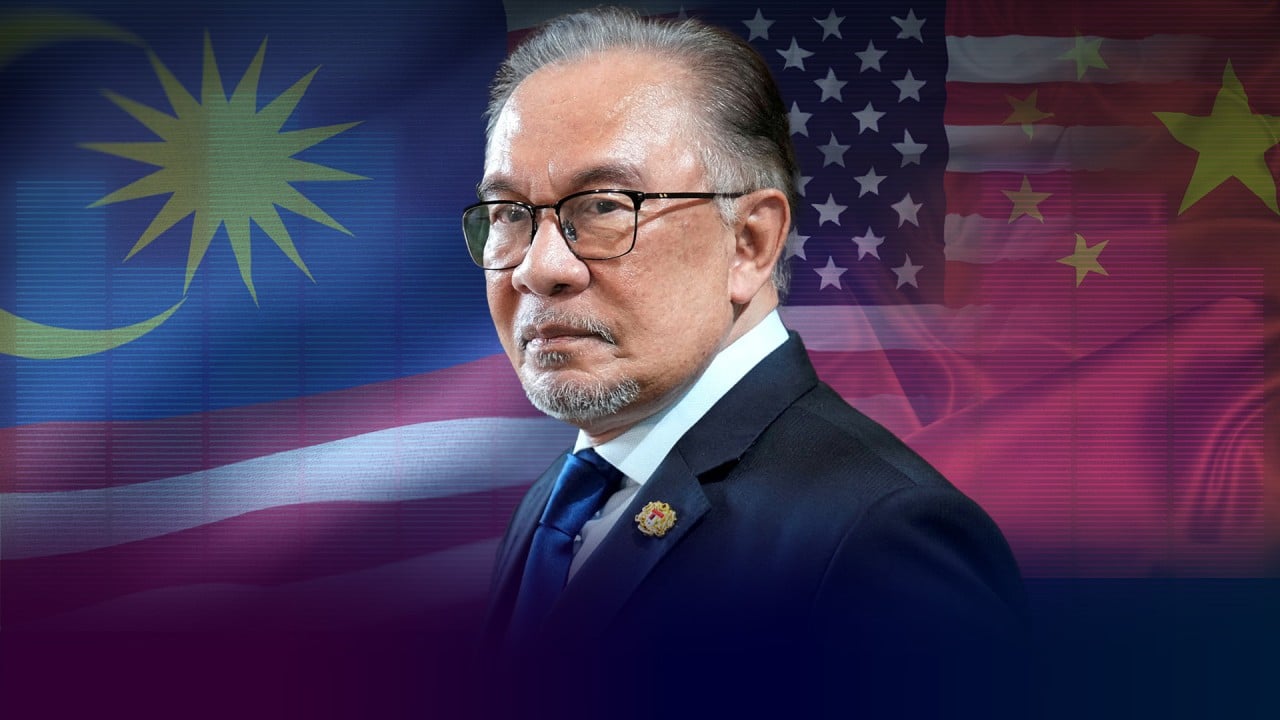Advertisement
Opinion | Asean neutrality remains key to regional peace amid US-China rivalry
As next Asean chair Malaysia shows, an open door to all, even with intensifying great power competition, is vital to stability and development
Reading Time:3 minutes
Why you can trust SCMP
3

Neutrality is essential to maintaining Southeast Asia’s stability and prosperity. To uphold Asean’s centrality, the region must remain steadfast in resisting the pressure to choose sides.
Advertisement
As Malaysia seeks membership of Brics, the emerging economies bloc that includes Brazil, Russia, India, China and South Africa, Prime Minister Anwar Ibrahim is expected to attend the grouping’s summit in Kazan, Russia, later this month. This, plus his meeting with Russian President Vladimir Putin at the Eastern Economic Forum last month, has raised questions about Malaysia’s long-standing non-aligned stance amid great power rivalry.
Critics have warned that such a shift could undermine Malaysia’s interests. More importantly, as leaders of the Association of Southeast Asian Nations meet in Vientiane, Laos, this week, there is concern that Anwar’s stance could have broader repercussions, especially with Malaysia set to assume the Asean chairmanship next year.
But Anwar denies Malaysia has abandoned its non-alignment policy, emphasising his engagement with all global stakeholders to advance national interests. For instance, amid the US-China tech war, semiconductor companies from both the West and China have relocated operations to Malaysia. The country’s open-door policy has enabled it to maintain its trajectory of progress and development, even amid the intensifying competition.
This open-door strategy is mirrored not only in Asean but across much of the Global South. For instance, countries such as Kenya attended the China-Africa summit in Beijing last month while continuing to engage with the United States through initiatives including the Strategic Trade and Investment Partnership. By maintaining openness to collaboration with all partners, Global South nations are unlocking unprecedented opportunities for their growth and development.
In contrast, in the Global North, China’s emergence as an economic powerhouse is increasingly viewed through a zero-sum lens. The US, in particular, sees China as a systemic threat to its global dominance and is determined to contain its rise. To that end, Washington has formed groupings such as the Quadrilateral Security Dialogue (with Australia, India and Japan) and the Aukus alliance (with Australia and Britain) to counter China’s growing influence in the Asia-Pacific.

Advertisement

